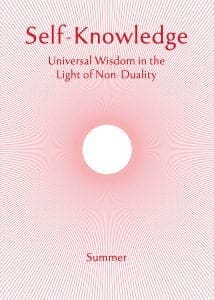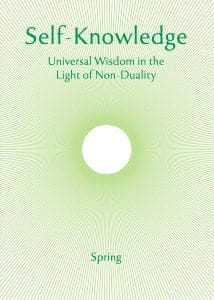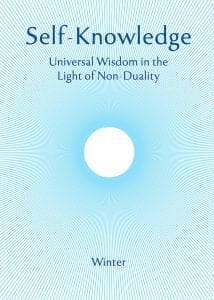Posts Tagged ‘Members’
The Aitareya Upanishad
The Upanishads contain statements that contradict the duality of everyday experience and indicate, as a higher truth, the state of non-duality. This applies to the apparent differences at all levels: differences of qualities which distinguish one thing from another; differences of metaphysical value or status, as between the divine and the human; divisions in the…
Read MoreHow Can Non-duality Help Me Now?
Non-duality can help us now by showing where to find four precious and life-giving resources. These are: a refuge, a foundation, a direction and a purpose. Where do these boons come from? Their source is Reality itself, non-dual, one without a second. This source is trans-cendental, but in the world of relativity we encounter it…
Read MoreCreating the Valuable
Amidst the religious ferment of 17th century Europe, new sects arose, and in some instances men and women of eminence emerged to give a lead to the people. The Quakers, or ‘Society of Friends’, was one such grouping, and Isaac Penington, the subject of this article, was one of the Society’s leading lights. Isaac was…
Read MoreThe Advaita and Life
Advaita (non-dualism) is a system of thought and an art of living. It has an ideal, a system of logic which examines the ideal, and a discipline which is essential to the realisation of the ideal. Its philosophy in the form of speculative thinking is not only profound, satisfying all the demands of the intellect,…
Read MoreThe Mandukya Upanishad
The Mandukya is the shortest of the main Upanishads, and its twelve verses deal with a single subject: how to awaken to our intrinsic identity with Brahman, the Absolute, aided, particularly, by practices based on the syllable aum. The Upanishad begins: The syllable aum is all this… All that is past, present and future is…
Read MoreIs the World an Illusion?
Some text books on non-dual philosophy tell us that Shankaracharya designated the ultimate Reality by the term ‘nirguna Brahman’ or quality-less Brahman. They say he thought this was quality-less, changeless and beyond the realm of cause and effect. If we are to look, therefore, in his system for the cause of the universe of qualities…
Read MoreWhat Did Descartes Certainly Know?
It is well-known that the philosopher Descartes, while searching for some truth beyond all doubt, observed: Je pense, donc je suis. He restated this idea in various places, once in Latin, as: Cogito, ergo sum. The phrase is widely known as The Cogito and is usually translated into English as ‘I think, therefore I am’.…
Read MoreGiordano Bruno, Friend of Truth
It is precisely among the heretics of every age,’ wrote Albert Einstein, ‘that we find men who were filled with the highest kind of religious feeling, and were in many cases regarded by their contemporaries as atheists.’ These words are well applied to Giordano Bruno, the Italian philosopher and poet, who was burnt at the…
Read MoreEducating the Mind
Men’s natures are alike. It is their habits which carry them far apart. Confucius The Chinese sage, Mencius, was once asked by a disciple how it was that while human nature is common to all men, some are great and some small. Mencius replied that the important point was habit—the habit of following either our…
Read MoreNicholas of Cusa as Scientist
The conclusion of an article on ‘Cusanus’ that was begun in the Summer 2024 issue of this journal Nicholas of Cusa (1401-1464), known as Cusanus, saw nature as a symbol of the Divinity. But what he asked of a symbol was not so much force and liveliness as clarity and certitude. ‘Nature’, he wrote, ‘is…
Read More



